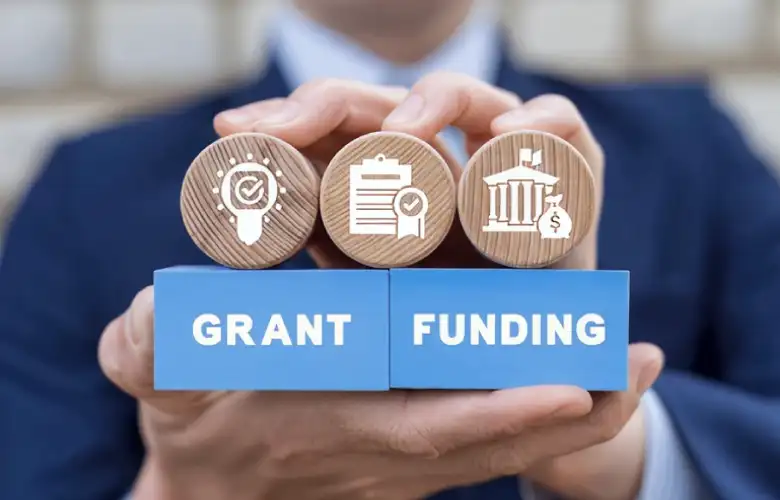How to Secure Funding from California's $100M Behavioral Health Grants in 2025
Why California’s Behavioral Health Funding Matters Now
Behavioral health encompassing mental health, substance use, and community well-being, remains a critical public health priority. California's $100 million Behavioral Health Continuum Infrastructure Program (BHCIP) “Unmet Needs” Round 2 funding in 2025 provides a historic opportunity to expand and modernize local behavioral health services. For nonprofits, healthcare providers, and community organizations, this funding is a catalyst for transforming access to care across the state.

Breaking Down the BHCIP Funding Program
Who Can Apply
- Nonprofit organizations providing behavioral health services
- County behavioral health departments
- Federally Qualified Health Centers (FQHCs)
- Tribal and community health organizations
Eligible Project Types
- Facility Renovations : Expanding counseling centers, crisis response hubs, and residential facilities
- Technology Investments : Telehealth platforms, electronic health record systems, and remote therapy tools
- Workforce Expansion : Recruitment, training, and retention programs for behavioral health professionals
Funding Amounts & Duration
- Total Funding Pool : $100 million for Round 2 “Unmet Needs” Part I in FY 2024–25
- Award Levels : Vary by project scope; eligible capital projects can receive multi-million-dollar grants
- Grant Period : Typically 24–36 months to complete capital developments and meet reporting requirements
Success Stories: Real-World Funding Impact
Riverside University Health System
Received $4 million in 2023 to build a crisis stabilization unit, reducing psychiatric hospitalizations and improving emergency department throughput.
Turning Point Community Programs (Sacramento County)
Awarded $6.2 million in 2023 under the PATH/CITED framework to establish a behavioral health crisis residential facility for people experiencing homelessness and severe mental illness. Key success factors included urgent need for documentation, ready-to-implement renovation plans, and a Medi-Cal reimbursement strategy.
How to Win California's BHCIP Grant (with Real Example)
Real Example : Turning Point Community Programs
Turning Point secured $6.2 million by demonstrating:
- Urgent Community Need
Presented county-level data showing rising homelessness and behavioral health crises. - Infrastructure Readiness
Provided property acquisition agreements and detailed renovation timelines to show immediate project start capability. - Long-Term Sustainability
Outlined a Medi-Cal billing plan and county partnerships to ensure ongoing operational funding beyond the grant. - Compliance & Reporting
Committed to California Department of Health Care Services (DHCS) standards for data tracking, patient privacy (HIPAA), and outcome measurement.
How to Apply for BHCIP Round 2 in 2025
- Review Program Priorities : Focus on projects that expand care for underserved communities, integrate behavioral and primary care, and address homelessness.
- Gather Local Data : Use county behavioral health needs assessments and homelessness statistics to substantiate the urgent need.
- Demonstrate Readiness : Present facility site control documents, contractor agreements, and project budgets.
- Outline Sustainability : Show long-term funding plans, including Medi-Cal reimbursements and local partnerships.
- Submit via DHCS Portal : Complete applications on the California DHCS portal: www.portal.dhcs.ca.gov
BHCIP Round 2 Timeline (2025 Application Cycle)
- RFA Released : May 30, 2025
- Application Portal Opens / PAC Registration : June 2, 2025
- Pre-Application Consultation (PAC) : June 26 – October 1, 2025
- PAC Scheduling Deadline : August 29, 2025
- Letters of Support Due : September 16 (San Francisco) & October 10
- Application Submission Deadline : October 28, 2025
- Award Announcements : Spring 2026
How Your Nonprofit Can Win in 2026
- Leverage Updated Local Data : Use the latest county behavioral health needs assessments and service utilization statistics to quantify unmet needs and emerging service gaps.
- Demonstrate Immediate Readiness : Secure site control agreements and contractor commitments in advance to show capacity for rapid project launch once the 2026 application window opens.
- Ensure Long-Term Sustainability : Clearly outline your Medi-Cal reimbursement strategies, state funding partnerships, and operational plans to sustain services beyond the grant period.
- Highlight Strategic Partnerships : Emphasize collaborations with county health departments, Federally Qualified Health Centers, tribal agencies, and local behavioral health networks to maximize reach and impact.
- Blend Data with Human Stories : Combine updated outcome projections and quantitative metrics with patient success narratives to create a compelling, human-centered proposal.
Grant-Readiness Checklist
Answer Yes or No to these readiness questions:
- Does your organization's mission include behavioral health infrastructure or service expansion?
- Can you track patient outcomes, service utilization, and financial metrics digitally?
- Do you have site control and vendor agreements for your proposed project?
- Are your HIPAA privacy and DHCS reporting systems established?
- Have you secured letters of support from county authorities and community partners?
- Can you present a clear Medi-Cal reimbursement plan for post-grant sustainability?
Where Pillar by SocialRoots.ai Fits In
Pillar by SocialRoots.ai empowers BHCIP applicants by providing:
- Integrated Data Collection : Unify clinic, outreach, and partner data into one platform.
- Outcome Tracking : Monitor patient-level outcomes and service utilization in real time.
- Compliance Reporting : Generate DHCS-ready reports for HIPAA, program metrics, and financial audits.
- Collaboration Dashboards : Share progress with county partners, funders, and stakeholders.
- Grant Narrative Builder : Transform data into compelling narratives that blend hard metrics with patient stories.
Conclusion: Call to Action
California's $100 million Behavioral Health Continuum Infrastructure Program (BHCIP) Round 2 grants offer a historic opportunity to transform behavioral health infrastructure across the state. The application deadline is October 28, 2025. Early preparation, including completing the mandatory Pre-Application Consultation by August 29, 2025, is essential for eligibility.
Organizations should act now to align programs with state priorities, gather robust local data, secure partnership commitments, and establish compliance protocols. Using advanced tools like Pillar by SocialRoots.ai can help your nonprofit integrate impactful data, generate compliance-ready reports, and craft compelling narratives—boosting your chances of winning multi-million-dollar funding and creating lasting community impact.
Don't wait, start preparing today to capitalize on this transformative funding cycle and drive meaningful behavioral health improvements for California communities.